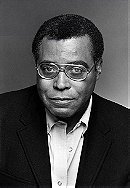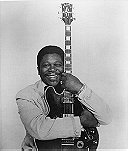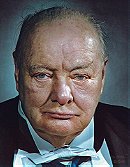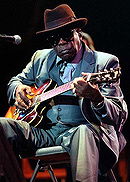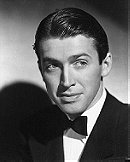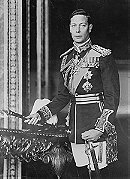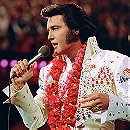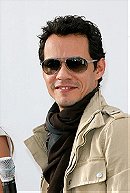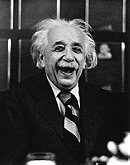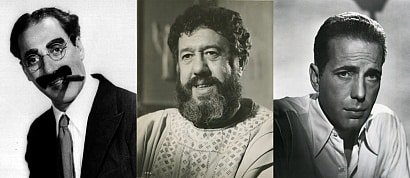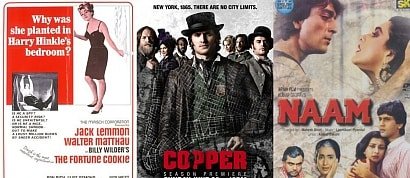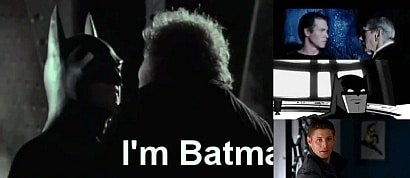Sort by:
Showing 23 items
Rating:
List Type:
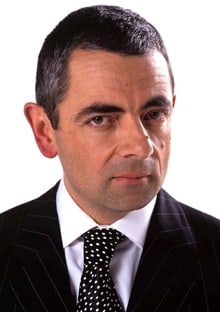
Rowan Atkinson’s stutter is not widely known. However, stuttering still is a factor in his life. Fans of the British actor might have been surprised to read in the weekly “10 Questions” column of the August 23, 2007, issue of Time magazine that one of the ten questions for the famous actor was, “Did you ever overcome your serious stutter?”
His answer was simply, “It comes and goes. I find when I play a character other than myself, the stammering disappears. That may have been some of the inspiration for pursuing the career I did.”
He had problems with the letter B. He overcomes it through over-articulation which he turned into a comic device.
-“I’d better not give his real name but his surname begins with B – let’s call him John Bartlett. Anyway, I rang him and said, ‘Hello, can I speak to John B-b-b-Bartlett please?’ And he said, ‘S-s-s-s-s-speaking,’ by way of a joke, because he didn’t know it was me.
“When I said, ‘Hello, this is Rowan Atkinson,’ there was this silence at the other end of the phone because, clearly, he realised that he had committed a considerable faux-pas. The weird thing about it was that it was the first time, certainly since my schooldays, that anyone had taken the mickey out of my voice or the way I spoke. And, of course, the main reason he did it was because he didn’t know me.
“It was terribly interesting because once you acquire a degree of fame and fortune, one suffers very little at the hand of the rest of humanity. People tend to treat you with a disproportionate and sometimes undeserving degree of respect, and then you’re on the phone to someone who’s not looking you in the face and treats you as they would treat anybody else, and suddenly you feel how a lot of people are treated a lot of the time.”
Though Rowan Atkinson stuttered as a child, he turned his unique speaking style into a trademark.
AJJ's rating:



Emily Blunt on How She Overcame Her Stutter:
I think it started to eke itself out; between the age of 7 and 14 was when it was really bad. And around 12 it was at its worst. By age 12, when it reached its peak, she stopped speaking altogether. “Why am I like this?” she thought at the time. “Why have I got this stupid voice problem? Everyone else can talk, what’s my problem?”.Not an awkward age at all to be unable to speak. Some people can grow out of it. It's easier for girls, funnily enough. Genetically, it's more common in boys.
“My friends started to accept my stutter as just who I was,” she says, “but I didn’t like being accepted in that way. I felt it was a misrepresentation of who I was, what I wanted to say, what I could see in the world and wanted to share. It felt like a mental mountain that I found impossible to overcome.”
So what happened? Did you grow out of it?
It was a combination of a few things. One was just growing out of it. Another one was gaining some kind of confidence. I had a really amazing teacher at that age, when I was 12, and he was really kind and helpful and encouraged me to be in the class plays, which previously I had no interest in being in 'cause I couldn't talk. He said, "Well, why don't you try it in a different voice? Try to do a funny voice or an accent. Maybe that would help." But it really did, I was actually able to speak fluently. Once you're able to hear yourself speak fluently, albeit in a ridiculous accent, you gain the confidence to think this could happen again and again. It was easier after that night, of that school play. It all became a bit easier.
“It’s ironic that I’ve ended up in a job where you have to be able to speak,” she says. “My stutter sort of showed me the way.”
AJJ's rating:



Eric appeared on the cover of Andy Warhol's Interview magazine in October 1986, a period in time which could be considered a high point in his career. In the interview he did with the magazine, he said, "I read a lot when I was little because I had the worst stutter in the world " "The the the wa-wa-wa-wa-wa-wa-water is cold'. And the class cracked up. I suppose it was funny, but it was so painful for me. So I read because it was a solitary thing where I didn't have to be cracked up at."
Similarly, the 2004 biography Julia: Her Life by James Spada goes into detail about Eric's painful stuttering several times throughout the book. Spada wrote, "Eric had not uttered a word until he was five, then suffered from a nearly crippling stutter." Spada quotes a family friend as saying, "When I knew Eric, he was so eager to please, he was a delight -he was this really cute kid who stuttered and who tried so hard." The book then goes on to say that Eric was so afraid of taunts at school that when his teachers went from pupil to pupil to read out loud in class, Eric would strategically figure out his passage in advance and then memorize it because he would not stutter when speaking from memory.
There was talk of putting Eric into a special ed class, but when his father, an acting teacher, saw him reciting memorized lines in front of a mirror without stuttering, he immediately decided that acting was the route for his son.
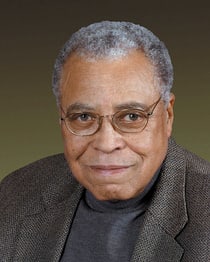
American award-winning actor who gave us the voice of Darth Vader in Star Wars and Mufasa in The Lion King, incredible though it may sound, James Earl Jones, owner of one of the most recognisable voices in the world, was almost mute as a child for eight years, thanks to a severe stutter.
'I had an Uncle Randy - who passed away last year - who was my brother really. I was the youngest grandchild and he was the youngest child and only four years older than me. Randy stuttered while we lived in Mississippi and I feel that I mocked him,' he says. 'I used to imitate him. I don't know whether I was imitating him to keep him company or to embarrass him. And then I ended up stuttering myself. I feel I was cursed.'
The stuttering and subsequent loss of James Earl's voice confounded his grandfather, to whom he was very close. 'He once said, as I was following him around the farm, "You had the most beautiful voice, and it was clear as a bell. What happened to it?" He was lamenting.'
But what exactly does James Earl mean by mute? Did he ever talk to anyone?
'As a small child, I would communicate to my family, or at least those who didn't mind being embarrassed by my stutter or my being embarrassed. I did communicate with the animals quite freely, but then that's calling the hogs, the cows, the chickens. They don't care how you sound, they just want to hear your voice.'
"Stuttering is painful. In Sunday school, I'd try to read my lessons and the children behind me were falling on the floor with laughter."
'But by the time I got to school, my stuttering was so bad that I gave up trying to speak properly.
'There was another pupil who sat behind me who was also a stutterer and the teacher, who was young, would shake him, and I'd say, "L-l-lll-l-let me teach him" and I took over his studies, or when he had to talk. I understood him. I understood that shaking him was not going to help. She was relieved.'
James Earl was lucky enough to be taught by English teacher, and poet, Donald Crouch, whom he calls 'the father of my voice'. He was a contemporary of Robert Frost, and memorised a poem every day in case he ever went blind so he might have poems he could read in his head.
'I had started writing poetry in high school and he said of one of them, "Jim, this is a good poem. In fact, it is so good I don't think you wrote it. I think you plagiarised it. If you want to prove you wrote it, you must stand in front of the class and recite it by memory. Which I did. As they were my own words, I got through it.'
'And he got me engaged in the debating class, the dramatic reading class and so on. He got me talking, and reading poetry - Edgar Allan Poe was my favourite.'
AJJ's rating:



B.B. stuttered from the time he was a child.
David Shirley, while in grade school King attended the lively Pentecostal church services, and it was there that he discovered he had a special gift for music. People were amazed that he could sing so beautifully without stuttering.
“I struggle with words. Never could express myself the way I wanted. My mind fights my mouth, and thoughts get stuck in my throat. Sometimes they stay stuck for seconds or even minutes. As a child, I stuttered. What was inside couldn’t get out. I’m still not real fluent. I don’t know a lot of good words. If I were wrongfully accused of a crime, I’d have a tough time explaining my innocence. I’d stammer and stumble and choke up until the judge would throw me in jail. Words aren’t my friends. Music is. Sounds, notes, rhythms. I talk through music.”
King faced the typical difficulties faced by many children who stutter. However, he had role models who stuttered. His Uncle Major was a severe stutterer and King wrote of him, “Probably because I stuttered too, the way he suffered with his speech broke my heart and made me love him even more. There was a silent bond between us. Unlike others, I could feel what he wanted to say and sometimes said it for him.”
His great-grandfather, Pop Davidson, who had been a slave, was a major influence on King’s life and also stuttered. King’s admiration for his great-grandfather helped him accept his own stuttering. “Sometimes I wondered about Pop’s stuttering, which unlike Uncle Major’s, frustrated him like crazy; I wondered if a speech impediment has to do with a boiled-up fury inside. Why did I stutter? Classmates were cruel and called me stupid, teasing me something fierce. But I never saw anyone tease Pop Davidson.”
Countless times in his life, King has stated that singing was always easier than speaking. He claims that his stuttering has decreased over the years but is always there.

As Xander Harris on TV's Buffy the Vampire Slayer, Nicholas Brendon lives in a world where demons are a normal part of adolescent life.
But off the set, Brendon knows that many of us have a host of real demons we ultimately must face, and if we avoid confronting them we do so at our peril. "No one escapes being haunted by something that absolutely terrifies them to the core, but very few feel it's okay to admit what it is that haunts us," says Brendon.
The fear that beset Brendon at an early age was the onset of his uncontrollable stuttering. "I was seven or eight when it really became apparent. The more anxious and embarrassed I became, the worse it got," notes Brendon. "Of course, the snowball effect of fear and failure soon took over and soon my life became a living hell."
Brendon remembers being afraid to talk in public, afraid to talk to strangers, and feeling ostracized by the rest of the world. "The truth is that people were generally nice to me, but that's not what I noticed," says Brendon. "I couldn't help feeling people thought I was a moron, and my self-imposed insecurity constantly bedeviled me."
Brendon regrets that his self-consciousness about his stuttering significantly interfered with his social life throughout high school and beyond. "Look, I know what it feels like to believe you're 'different' in a bad way. I didn't even get it together to date until I was 21 or 22,"
"Every day I still have to remind myself to slow down and concentrate. Constant repetition of tongue-twisters was like lifting weights for me, but patience and persistence have paid off.
AJJ's rating:



The star confesses he was constantly teased by his fellow classmates for stammering. His aunt finally took him to a communication specialist to boost his self-esteem.
Samuel L. Jackson sought help from a speech therapist to cure a stutter when he was a child.
He told New York Magazine, "It manifests itself more when I read than when I talk. I have no idea why."
But the 63 year old no longer feels any shame, insisting some of his best pals and Hollywood greats have also struggled with a speech disorder.
He adds, "Denzel (Washington) stuttered. James Earl Jones stuttered. There are still days when I have my n-n-n days or r-r-r days. I try to find another word."
AJJ's rating:


 Marilyn Monroe's signature breathy way of speaking may have been her way of treating her stuttering. She seems to have been taught by a speech coach to use exaggerated mouth movements and a breathy and affected speaking style to control her stuttering.
Marilyn Monroe's signature breathy way of speaking may have been her way of treating her stuttering. She seems to have been taught by a speech coach to use exaggerated mouth movements and a breathy and affected speaking style to control her stuttering.Believe it or not, Monroe's stuttering would affect her life in her final days. During the filming of her last movie, the unfinished "Something's Got to Give" from which she was fired, the troubled actress was under so much stress from her personal life, not to mention the abuse of prescription drugs, that her stuttering returned, sometimes forcing her to not be able to deliver her lines at all. Tapes from the outtakes of "Something's Got to Give" have circulated in the underground for decades, and it is said that her stuttering is quite noticeable at times.

While the world knows Bruce Willis as an A-list actor, few know that he struggled with stuttering throughout his first 20 years.
"I could hardly talk. It took me three minutes to complete a sentence. It was crushing for anyone who wanted to express themselves, who wanted to be heard and couldn't. It was frightening. Yet, when I became another character, in a play, I lost the stutter. It was phenomenal."
In high school, Willis became the class cut-up, which eventually lead to getting involved in drama. Becoming the class joker was his way of trying to fit in. In fact, Anthony Rastelli, a high school teacher vividly remembers Willis' struggles and first attempts to speak before an audience. Rastelli is quoted in Parker's book as saying, 'At an age when most boys were finding their feet, Willis had a hard time. The stammer was a problem and in the end he began to compensate for it by his antics.
He had to establish himself among the pack, and, unable to do so with fluent speech, he did it another way ' making himself stand out in the crowd by becoming the joker, the mini-tearaway. What he was doing was saying "Yes, I stutter ' but doesn't mean I'm not good as the rest of you, better even.' I nearly died for him when he went on stage to make a speech. The kids were all laughing but somehow, he stuck it out and finished his piece, which was fairly typical of his spirit. And eventually, of course, he discovered that in front of an audience, he could overcome his disability."
"A big part of my sense of humor came out of my stuttering, in trying to overcome that and have some dignity. I said, Yes, I stutter, but I can make you laugh."
AJJ's rating:



As a child, Sam had a stutter which he worked very hard to control.
"I don't know what I did to change the stutter, I think I just forgot it, by degrees and in part I always thought that actually... I was sent on one of those, kind of, outward bounds things where you had to run across logs or fall in the river and drown, and that did a lot for my physical self- confidence. At about the same time I was kind of doing better at school and I was learning to debate and I was involved in drama and plays and so on. I was becoming kind of a confident person and I suspect that all of that kind of worked on the stuttering and vice versa, and so there was no particular game plan, it just sort of happened organically."
 Winston Churchill was considered the best orator in Parliament despite the fact that he was a stutterer. He went to great lengths to hide and avoid his stuttering. A great deal of preparation went into all his speeches. Churchill wrote them out well in advance, often weeks, of when he would have to give them. He memorized them forwards and backwards so he could practice them. Before beginning to give a speech, Churchill would hum discreetly to himself to get his vocal folds vibrating.
Winston Churchill was considered the best orator in Parliament despite the fact that he was a stutterer. He went to great lengths to hide and avoid his stuttering. A great deal of preparation went into all his speeches. Churchill wrote them out well in advance, often weeks, of when he would have to give them. He memorized them forwards and backwards so he could practice them. Before beginning to give a speech, Churchill would hum discreetly to himself to get his vocal folds vibrating.As a young man, Churchill worried that his stuttering would have an impact upon his ambition to go into politics. But he didn't believe in submitting to failure so he practiced and persevered. He both practiced his speeches and practiced nonsense phrases as he walked, such as "The Spanish ships I cannot see since they are not in sight." When he was 23, he wrote, "Sometimes a slight and not unpleasing stammer or impediment has been of some assistance in securing the attention of the audience…"

Actor Harvey Keitel has talked about how deep a challenge dysfluency can be: “As a kid I was told to shush, and as a result it’s taken me a lifetime to be able to speak. … I had to hide it — you hammer it down until you can’t think anymore, you can’t speak anymore, and your inner world is in retreat.
You can’t function, and you stutter, which I did as a boy. You will stutter not only vocally, but inwardly. You will hesitate, you will fumble, you will futz, and you will deny the truth because the truth is too difficult to handle. It’s hard to select which situations to run away from once you become a runner, so you hide from everything.”
An ex-Marine, Keitel overcame a childhood stuttering problem, training at the Actors Studio, studying under Frank Corsaro, Lee Strasberg and Stella Adler, and toiling primarily in summer stock, repertory, and the fringes of off-off Broadway and community theater before finally coming to prominence in the early films of Martin Scorsese.

Carly Simon has revealed she grew up a stammering wreck, and she still can't read in public without stuttering.
The music icon admits she had a stammering problem that plagued her childhood - and she conquered it by singing. In a new interview with Ladies Home Journal magazine, the You're So Vain singer says, "In retrospect, my stammering was an opportunity... (Stutterers) can't stammer when they sing. "There's something about the mind connecting differently to the vocal cords when you apply either rhythm or melody."
And, though she had largely conquered her speech impediment, she admits she still can't read aloud. She adds, "I loved to read, but never out loud. I still can't read out loud. I almost always couldn't say H's. Then there were some days that it was S's and some that it was T's. "So I became this walking thesaurus. You learn to supply yourself with substitute words you won't trip over." Simon feels sure here stuttering secret has a large part to play in her legendary stage fright, which has hampered her career: "I'm almost positive it did. Because as a kid I was so frightened in class that when I was going to be called on, my terror would strike. And that became true later, onstage."

John Lee Hooker, born in 1915, also took refuge in music at an early age as he struggled with stuttering.
“Hooker sounds as if he has $100,000 worth of sophisticated digital goodies built in his chest and his throat. Yet his voice is quiet and muted, its tonal richness offset by a residual stammer and blurred by the deepest alluvial accents of the Mississippi Delta.”
Also, Bernard Besman, the producer who first recorded Hooker, claims that the primary reason for his decision was that he was intrigued by the scenario of a man who stuttered when he spoke, but not when he sang.
Though his stuttering reduced to some degree in his adult life, Hooker is remembered by friends as putting them at ease about his stuttering by being able to poke fun at his speech in a soft way.
Moses is believed to have been a stutterer. In Koran, 20:26-29 Moses ssaid to the Lord, "Oh, my Lord, I am not eloquent, either heretofore or since thou hast spoken to thy servant; but I am slow of speech and of tongue."
The analogy of a knot upon his tongue refers to his stuttering.
Then the Lord said to him, "Who has made man's mouth? Who makes him dumb, or deaf, or seeing, or blind? Or who gives sight to one and makes another blind? Is it not I, the Lord? Now, therefore go, and I will be with your mouth and teach you what you shall speak."
But he said, "Oh, my Lord, send, I pray, some other person."
Then the anger of the Lord was kindled against Moses and he said, "Is there not Aaron, your brother, the Levite? I know that he can speak well; and behold, he is coming out to meet you, when he sees you he will be glad in his heart. And you shall speak to him and put the words in his mouth; and I will be with your mouth and with his mouth, and will teach you what you shall do. He shall speak for you to the people; and he shall be a mouth for you, and he shall be to him as God.
The analogy of a knot upon his tongue refers to his stuttering.
Then the Lord said to him, "Who has made man's mouth? Who makes him dumb, or deaf, or seeing, or blind? Or who gives sight to one and makes another blind? Is it not I, the Lord? Now, therefore go, and I will be with your mouth and teach you what you shall speak."
But he said, "Oh, my Lord, send, I pray, some other person."
Then the anger of the Lord was kindled against Moses and he said, "Is there not Aaron, your brother, the Levite? I know that he can speak well; and behold, he is coming out to meet you, when he sees you he will be glad in his heart. And you shall speak to him and put the words in his mouth; and I will be with your mouth and with his mouth, and will teach you what you shall do. He shall speak for you to the people; and he shall be a mouth for you, and he shall be to him as God.

The great American film actor had a bad stammer when he was a younger man. He cured it by placing a stone inside his mouth and it is for this reason (apparently) that he had that voice which everyone mimicked so well. Not in fun, but in awe.

Noel had a violent childhood. Noel had an unhappy childhood. He and his brothers were often beaten by his alcoholic father. If they stammered, he hit them. He even hit them to get rid of the stammer.
He and his brother Paul went through years of speech therapy to get over their stammers.

He had a stammer that lasted for many years,
His stammer, and his embarrassment over it, together with his tendency to shyness, caused him to appear much less impressive than his older brother, Edward.
Edward repeatedly ridiculed and humiliated his brother over the stammer — and was never forgiven. After Edward abdicated, George turned the tables in a vengeful feud which ended only with his death.
Because of his stammer, Albert dreaded public speaking. After his closing speech at the British Empire Exhibition at Wembley on 31 October 1925, one which was an ordeal for both him and his listeners, he began to see Lionel Logue, an Australian-born speech therapist. The Duke and Logue practised breathing exercises, and the Duchess rehearsed with him patiently.Subsequently, he was able to speak with less hesitation.
He and his wife Queen Elizabeth – the future Queen Mother,had tried all the traditional court doctors with their antiquated methods, such as filling the sufferer’s mouth with marbles, but to no avail. The received wisdom at the time was that stammering was a form of 'mental weakness’.
Logue suspected that the Duke’s speech impediment might be connected to his domineering father, George V, who had, among other things, forced the left-handed Bertie to write with his right hand, something that is associated with stammering.
But part of his technique was to make the Duke believe the opposite: that his condition was physical rather than psychological and could be cured by breathing exercises and saying tongue twisters. This gave the Duke confidence that he had been lacking hitherto.
'Singing is a very different process to speaking because the timing is dictated by the music,’ Hayhow says. Another method Logue used was to play music to the King through headphones while he was reading, so that he couldn’t hear himself and become self-conscious, something known today as 'masking’.
it is generally accepted today that when stammerers are angry they lose their inhibitions.
'Anxiety can tighten the voice box,’ 'And we do become less inhibited when we swear because the words don’t hold meaning in the same way. But it is not a standard technique.’
'Nowadays, we let the patient talk through their problems more. We are more client-led. In some ways Logue was treating the King as a child. But his methods were certainly an improvement on what came before.’
On September 3 1939, the day war was declared, the King had to deliver the most important speech of his life.
This was staged. He actually delivered the speech standing at a lectern in an anteroom, with the window open and his jacket off. Only Logue was allowed in the room with him and he advised the King to forget everyone else and just say the speech to him, as a friend. His delivery was calm, dignified and measured. At the end of the broadcast Logue finally called him 'Your Majesty’.
By 1944, King George VI felt confident enough about his stammer to turn it into a verbal signature. He made a speech disbanding the Home Guard and it was deemed a great success. And he did it without the help of Logue, although the speech therapist was on hand if needed.
The King only stumbled over the 'w’ in weapons. Afterwards, Logue asked him why this letter had proved a problem. 'I did it on purpose,’ the King replied with a wink. 'If I don’t make a mistake, people might not know it was me.’

Nicole Kidman has said, “I am very shy – really shy – I even had a stutter as a kid, which I slowly got over, but I still regress into that shyness. So I don’t like walking into a crowded restaurant by myself; I don’t like going to a party by myself.
I just remember everyone always saying to me, 'Calm down, think about what you're gonna say,' and then I grew out of it. I remember when I was little just being so excited to get it out and I couldn't get it out."

At age 5, Elvis Presley’s mother took him to a local fair for a singing competition. The singing was recommended by a teacher as a way for young Elvis to gain confidence and stop stuttering. He didn’t win (though nobody’s ever heard of the kid that beat him), and the stuttering continued into high school. By the time he assumed his throne in the Rock-n’-Roll empire, however, he was more known for his hip-swiveling and his blue suede shoes than for a stutter.
AJJ's rating:



He told Time magazine, he sang in elementary school where "whenever I sang—maybe because I had to concentrate so hard—I'd lose my embarrassing stutter."
Marc was painfully shy to the point that he would refuse to talk. He then discovered that his speech impediment would disappear when he sang. “It was my savior,” he confessed. “I preferred to sing than to talk so I protected it, [singing] was mine and that’s why when I do anything I do it wholeheartedly. I have to get it right.” He continued, “It’s been good to me so I have to be good to it.”

Academy Award-winning actress. Julia Fiona Roberts is an Academy Award winning American film actress and former fashion model. Roberts has become the highest paid actress in the world, topping the annual power list of top earning female stars for four consecutive years (2002-2005). Julia Roberts admitted the fact that she stuttered when she was younger without ever going into much detail, but she now speaks fluidly and is a respected actress.
AJJ's rating:


It is not known exactly what causes stuttering but experts suggest a number of factors may be involved. One is genetics - children of parents or other family members who stutter are more likely to stutter themselves. It is also four times more common in boys than girls.
Around five per cent of children will stammer at some time and while most overcome it, one per cent will continue into adulthood. It usually begins between the ages of two and five, when speech and language skills are developing.
Research suggests that the rates of speech improvement are very high if parents can get help for a young child with a stammer from a speech therapist when it first appears.
All the people mentioned here did not let their stuttering stop them from being successful. They are wonderful examples of the fact that a stuttering problem does not have to be a hindrance to success.
Added to
39 votes
Celebs Life & Death
(65 lists)list by SFG¿mystic
Published 13 years, 1 month ago  1 comment
1 comment
 1 comment
1 commentPeople who voted for this also voted for
10 Most Popular Suicide Spots on Earth
Caricatures of Film Actors
Most Valuable Listal Players, sorted by country
Top 10 Cruel Torture Methods
watched or rewatched in 2013
Things - I find amusing
Mind-Blowing (True) Facts about Movies
Fictional Places Actually Existed
Movies That Predicted The Future
Watching Closely?50 Mind-Blowing Fan Theories
That's Gotta Hurt: The most painful movie deaths
10 Still Unsolved Mysteries
Pop Zombies: Musicians as the Walking Dead
Good or Evil ?
Alphabetical Typographic Film Posters
More lists from AJJ
➲ The Evolution of Michael Clarke Duncan ➧
✦ 2012✦ movies✦
I'm Batman!
To sum up this summer..2012
➲ The Evolution of Tyler Hoechlin ➧
Layne Staley & Kurt Cobain
Sam Worthington ツ
 Login
Login
 8
8
 0
0


